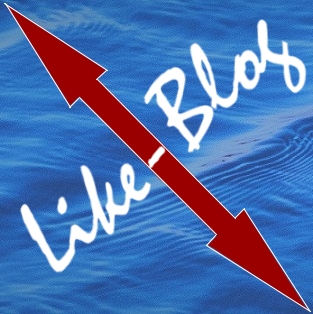Like-Blog
Presenting you the most interesting translation solutions

Why Like-Blog? Now, first of all, this blog is a blog that you should like (and read regularly) – at least, if you are interested in translation. Then, the topic discussed here is one in which the meaningful likeness between a text and its translation in the language pair English-German plays a key role. On this page, I will take a close look at some interesting translation solutions that I have come across in the course of my work as a translator and translation scholar.
A translation solution is only as good as the arguments that support it. This means that any translation criticism, whether positive or negative, needs to be justified. The quality of a translation solution shows only when we compare it to other possible translation solutions in a given translation situation. Therefore, a translation critic should not only say why a translation solution is bad, but also demonstrate what a better solution might look like. I will try to stick to these principles of translation criticism. So if you have any questions regarding my line of argument or if you disagree, please, let me know your opinion by phone at +49 4171 6086525 or by e-mail to bittner@businessenglish-hamburg.de. So much for the introduction. I hope you’ll enjoy reading this blog!
Mission (February 2026)
“Bringing NASA down to Earth” by Tom Huntington was published in Invention and Technology (Fall 2008, Volume 23). The article discusses possibilities of making space technology available for use on earth. The legal foundation for that is mentioned in the following sentence:
“Finding commercial applications for technology that NASA developed was built into its mission from inception: section 203 of the National Aeronautics and Space Act, the legislation that created the agency in 1958, direct ed [sic] NASA to find ways to transfer its technology to the private sector.”
This was translated: “Seit ihrer Gründung ist es eine Mission der NASA, kommerzielle Anwendungsmöglichkeiten für von ihr entwickelte Technologien zu finden: Abschnitt 203 des National Aeronautics and Space Act – das Gesetz, auf dessen Grundlage die Behörde 1958 entstand –, weist die NASA an, den Transfer ihrer Technologie auf den privaten Sektor zu ermöglichen.”
In this translation, the noun phrase “eine Mission der NASA” poses a problem. For, in connection with NASA, the combination of indefinite article plus “Mission” typically refers to a space flight conducted by NASA. The source text, however, is not about a NASA mission to the stars but about one aspect of NASA’s overall objective as an organisation.
The above translation might be corrected as follows: Seit ihrer Gründung ist es Teil der allgemeinen Zielsetzung der NASA, kommerzielle Anwendungsmöglichkeiten für von ihr entwickelte Technologien zu finden: ...
PS: In a legal context, the typical rendering of “section” would be “Paragraf”.
